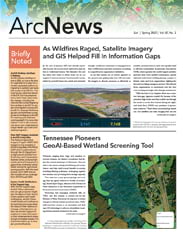The 50th anniversary of the strengthened Freedom of Information Act (FOIA), vetoed by US president Gerald Ford and overridden by Congress, was in November 2024. It came and went without much mention, though many have benefitted from this important open government law. That inattention did not, however, deter some advocates who played a pivotal role in the passage of the 1974 FOIA amendments from organizing a 50th Anniversary Celebration at the National Press Club in Washington, DC, on December 19, 2024.
On April 12, 1973, in a prepared statement made before the US Senate’s Subcommittee on Intergovernmental Relations of the Committee on Government Operations and the Subcommittees on Separation of Powers and Administrative Practice and Procedure of the Committee on the Judiciary, I outlined how freedom of information should work at the government level:
[W]e see the problems of public access revolving around substantive and procedural barriers to information. The Freedom of Information Act can conceivably be a useful tool to inform the public about just how the government is protecting the public interest if those barriers are removed. We urge these committees to pass what changes are necessary and then to provide the constant oversight on the executive to make sure that branch is complying with the letter and spirit of the law. We also reassert that the Freedom of Information Act must apply to all governmental processes, executive as well as legislative. The Congress must be open to public scrutiny if the people’s right to know is to be secure.
The strengthened FOIA was the foundation of the open data movement. In many ways, it impacted GIS data sharing. This has evolved into people and organizations sharing geographic map services, and it has even shaped the vision of the Federal Geographic Data Committee, which promotes the coordinated development, use, and dissemination of geospatial data at the national level in the United States.
I opened the 50th Anniversary Celebration with remarks on the critical importance of FOIA, which is designed to implement the principle that information is the currency of democracy. It is a unique law: The people are its enforcers through their petitions for specific files, reports, inspections, procurement contracts, grants, and subsidies among a multitude of material that the public has a right to know. What’s more, petitioners—be they regular people, academics, the press, corporations, unions, co-ops, or anyone in the world—who are denied after their internal appeals can take the government to federal court.
Government agencies are the administrators of FOIA, processing requests and deciding what to release, redact, and decline. While responding to FOIA requests has often been seen as a burden by staff members of many agencies, since it creates more work with no additional staff or funding, the act has led indirectly to a kind of open data philosophy that has impacted the sharing of maps and related tabular data across government organizations.
In the years leading up to 1974, however, opposition to this legislation from the federal bureaucracy and corporations was furious. Government officials from nearly every department or agency—including the Department of Defense, the Department of the Interior, the Department of the Treasury, the Department of State, and the Department of Agriculture, along with regulatory agencies—were demanding categories of exemptions and dilutions. They dreamt up endless excuses for keeping government information secret, inundating the champions of the FOIA legislation—California Representative John E. Moss and Massachusetts Senator Ted Kennedy—with written objections. But they and other members of that Congress held strong and enacted the most robust freedom of information law in the world.
The 1974 FOIA law carried exemptions that were in the original 1966 FOIA law. But it still provided requestors with the leverage to produce huge amounts of material that was turned into stronger civic action, groundbreaking media exposés, and more fortified academic research, and helped create a climate for the emergence of ethical whistleblowers revealing wrongdoing. With supportive liberal and conservative legislators in Congress, whistleblower protection laws were passed that have saved taxpayers tens of billions of dollars and generated some deterrence to government abuses as well.
Government disclosures have infused judicial actions, sparked health and safety regulations, and inspired new laws. In my remarks at the 50th Anniversary Celebration, I encouraged greater usage of FOIA by the American people—including high school students who can learn about and use state and local freedom of information laws as part of their civic training. Many high schools participate in GIS Day and benefit from the culture of openness fostered by this historic Freedom of Information law. Information is also the currency of mapping.
For more information, see the Center for Study of Responsive Law’s report on the history of the 1974 FOIA Amendments.


